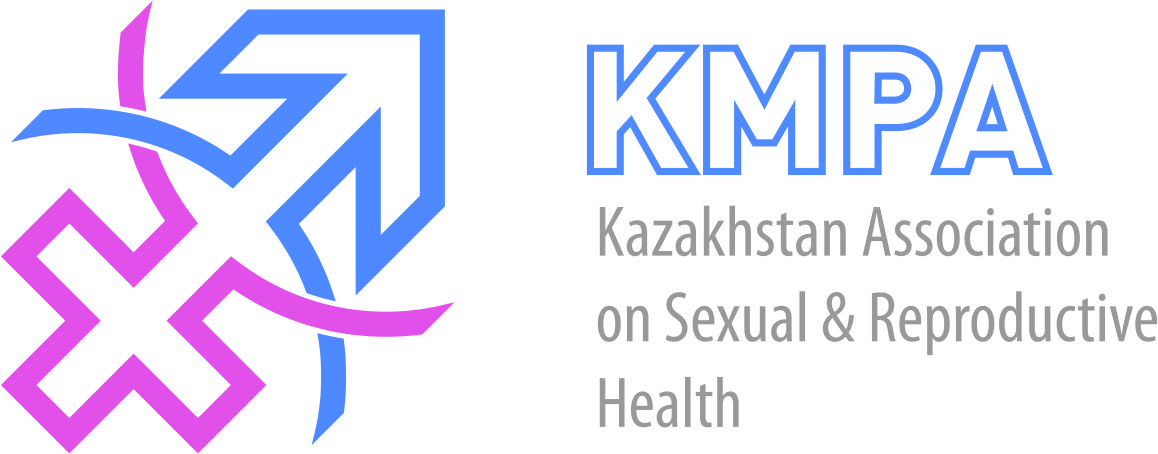

| 31 March 2016
Kazakhstan Association on Sexual and Reproductive Health (KMPA)
The Kazakhstan Association for Sexual and Reproductive Health (KMPA) was established in 1996. In 2002 KMPA became a full Member Association of IPPF. The organization currently has 9 branches and 4 regional offices in Almaty, Kostanay, Shymkent and Nur-Sultan. In total, there are 13 branches of KMPA. The organization’s activity is based on protecting the right of youth, men, and women to quality medical services and information in the field of sexual and reproductive health (SRH). KMPA conducts training of youth to prevent underage pregnancy, sexual and gender-based violence (SGBV), and the spread of sexually transmitted infections (STIs), including HIV. In addition, KMPA implements projects on family planning and promoting contraceptive methods to prevent unintended pregnancies. KMPA focuses on the following goals: (1) advocacy of sexual and reproductive rights; (2) elimination of unsafe abortion; (3) promoting condom use to prevent HIV/AIDS and decreasing stigma against people living with HIV/AIDS; (4) educating youth and teenagers on sexual and reproductive health and rights (SRHR) to allow choice and safe relations; (5) advocating for access to SRH services; (6) training healthcare professionals on family planning, contraception, safe abortion, antenatal care and consultation skills; and (7) training of teachers on SRHR, CSE, prevention of SGBV and promoting gender equality. KMPA seeks to improve the reproductive health of the population of Kazakhstan, especially the socially vulnerable, the poor, and young people, by protecting the basic reproductive rights of women, men, and young people, ensuring free and informed choices regarding SRH, providing comprehensive sexual education and high-quality information, and promoting access to SRH services. KMPA bases its activities on the principles of gender equality, freedom of decision-making and voluntary participation.

| 31 March 2016
Association Nigérienne pour le Bien-Etre Familial
Since 1996, the Association Nigérienne pour le Bien-Etre Familial's (ANBEF) have been providing a comprehensive range of sexual and reproductive healthcare including the prevention and management of HIV and AIDS, antenatal and post-natal care, the provision of post-abortion care in clinics and health huts in rural areas, treatment of male and female infertility, and pre-marital counselling. Importantly, the Member Association also trains young people in income-generating activities. ANBEF reaches out to rural and hard-to-reach communities, including street children, sex workers, vulnerable young people and rural populations. Services are delivered by a team of permanent staff, hundreds of volunteers, peer educators and community-based distributors (CBDs). Given that a very high proportion of 15-19 year olds give birth, and risks of maternal death and rates of child mortality are among the highest in the world, ANBEF fulfils a critical need in Niger that is not met by the private sector or government providers. ANBEF’s expertise has been called upon by the Niger government’s Technical Committee for the development of the national IPCD+10 (International Conference on Population and Development) strategy. The Member Association works with non-governmental organizations including CARE International and FCI Partnerships, and it receives funding from UNFPA and Multisector Programmes (IDA/World Bank). ANBEF works closely with other specialist population, planning, youth, HIV and AIDS and sexually transmitted infection (STI) groups in Niger.







